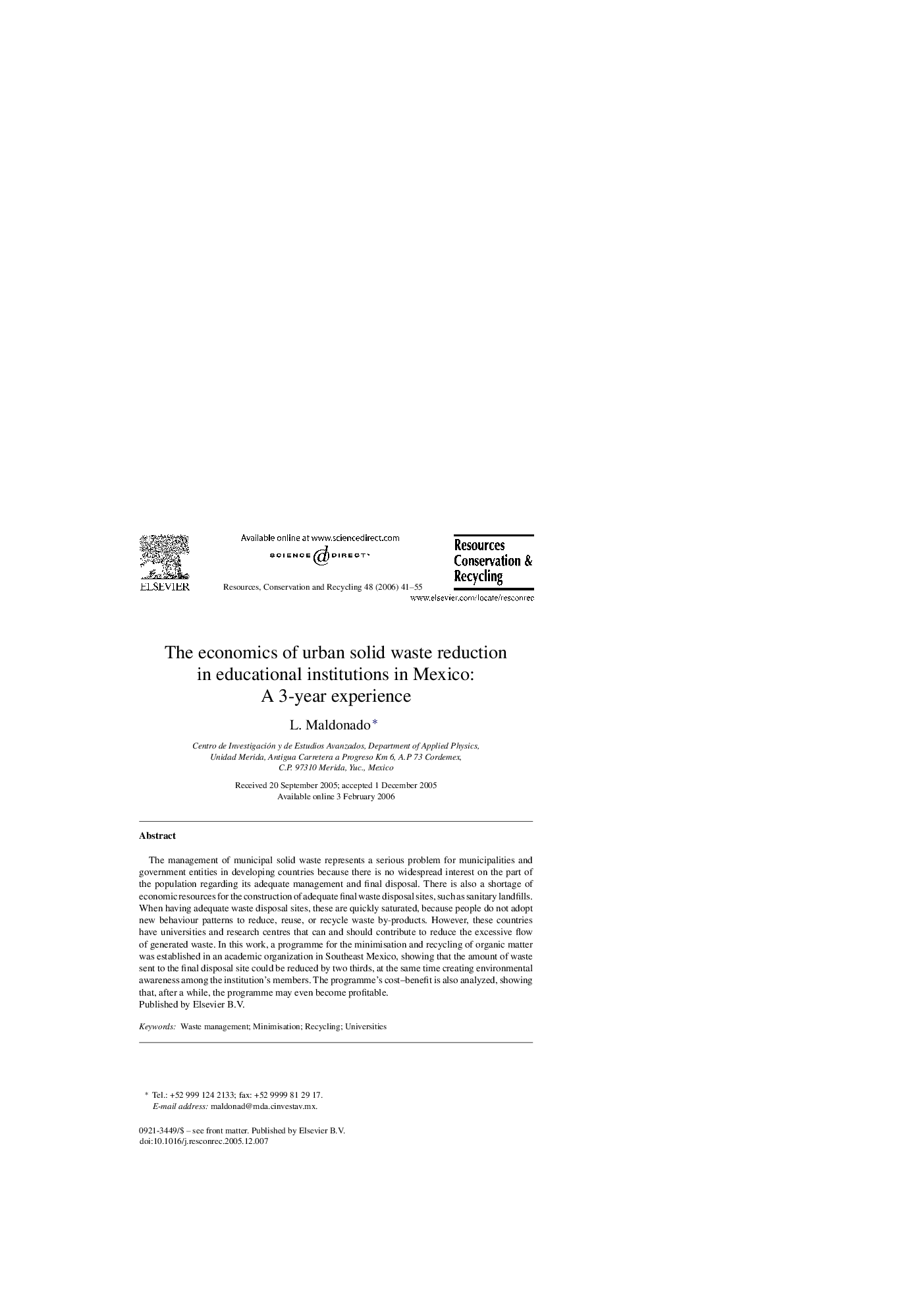| Article ID | Journal | Published Year | Pages | File Type |
|---|---|---|---|---|
| 1064202 | Resources, Conservation and Recycling | 2006 | 15 Pages |
The management of municipal solid waste represents a serious problem for municipalities and government entities in developing countries because there is no widespread interest on the part of the population regarding its adequate management and final disposal. There is also a shortage of economic resources for the construction of adequate final waste disposal sites, such as sanitary landfills. When having adequate waste disposal sites, these are quickly saturated, because people do not adopt new behaviour patterns to reduce, reuse, or recycle waste by-products. However, these countries have universities and research centres that can and should contribute to reduce the excessive flow of generated waste. In this work, a programme for the minimisation and recycling of organic matter was established in an academic organization in Southeast Mexico, showing that the amount of waste sent to the final disposal site could be reduced by two thirds, at the same time creating environmental awareness among the institution's members. The programme's cost–benefit is also analyzed, showing that, after a while, the programme may even become profitable.
